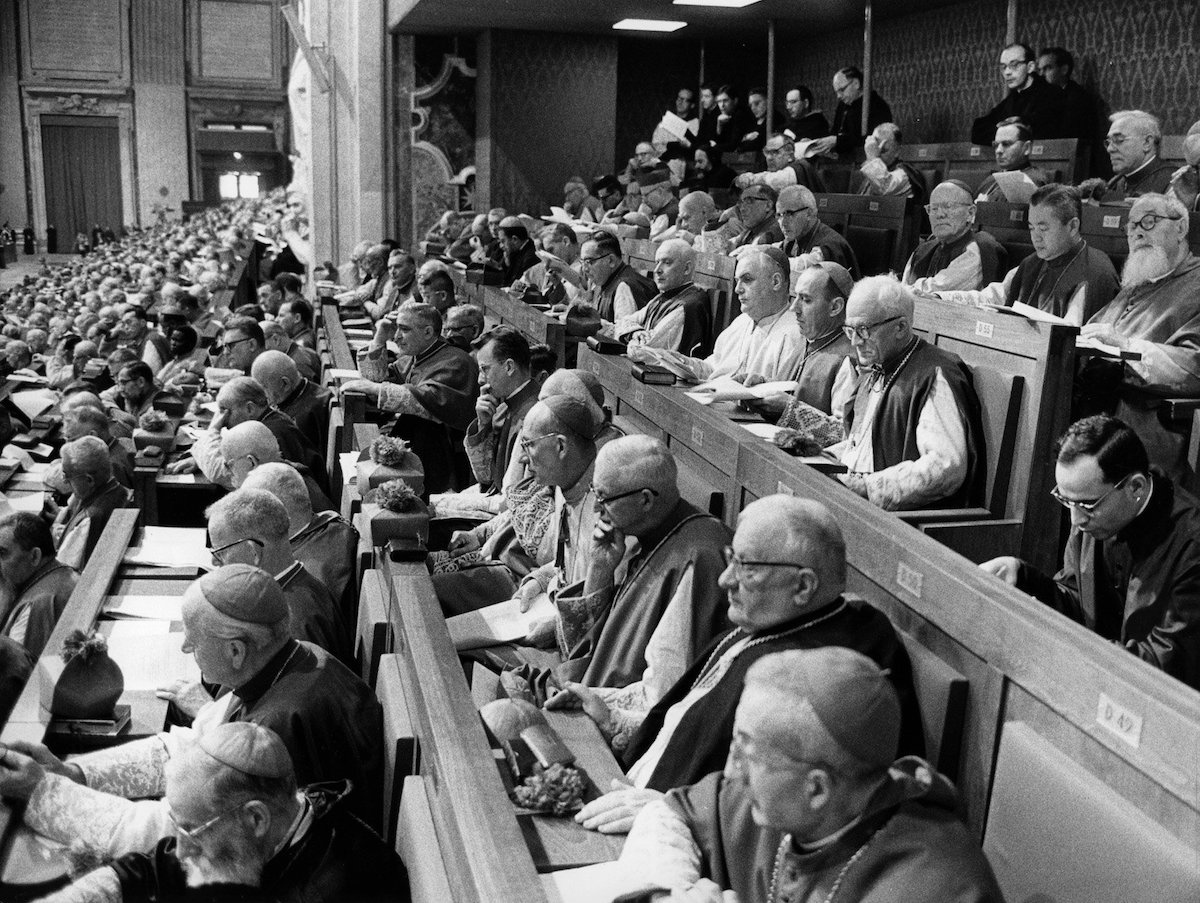By Cindy Wooden, Catholic News Service
VATICAN CITY (CNS) — While the term “synodality” is not found in any of the 16 documents of the Second Vatican Council, the council’s vision and definition of the church is at the heart of what synodality is, said Cardinal Mario Grech, secretary-general of the Synod of Bishops.
The “magna carta” of the 2021-2023 process of the synod “is the council’s doctrine on the church, particularly its theology of the people of God, a people whose ‘condition is the dignity and freedom of the children of God, in whose heart the Holy Spirit dwells as in a temple,'” he said, quoting from the council’s Dogmatic Constitution on the Church.
Cardinal Grech published a message on the council and synodality Oct. 10, the day before the 60th anniversary of the opening of the council.
St. John XXIII opened the council Oct. 11, 1962. All the bishops from all over the world were invited to participate in its four sessions, which St. Paul VI concluded Dec. 8, 1965.
The current synod process with its listening sessions around the world, its prayer and discernment is focused on the theme, “For a synodal church: Communion, participation and mission.”
Those three words, Cardinal Grech wrote, “are eminently conciliar words. The church that we are called to dream and build is a community of women and men drawn together in communion by the one faith, our common baptism and the same Eucharist, in the image of God the Trinity: women and men who together, in the diversity of ministries and charisms received, actively participate in the establishment of the kingdom of God, with the missionary impetus of bringing to all the joyful witness of Christ, the only savior of the world.”
The Synod of Bishops, the cardinal noted, was established by St. Paul VI in 1965 at the beginning of Vatican II’s last session precisely “to prolong in the life and mission of the church the spirit of the Second Vatican Council, as well as to foster in the people of God the living appropriation of its teaching.”
“This task is far from being completed since the reception of the conciliar magisterium is an ongoing process; in some respects it is still in its infancy,” the cardinal wrote.
In the decades since the council, Cardinal Grech said, “the synod has constantly placed itself at the service of the council, contributing for its part to renewing the face of the church in ever deeper fidelity to sacred Scripture and living tradition and in attentive listening to the signs of the times.”







